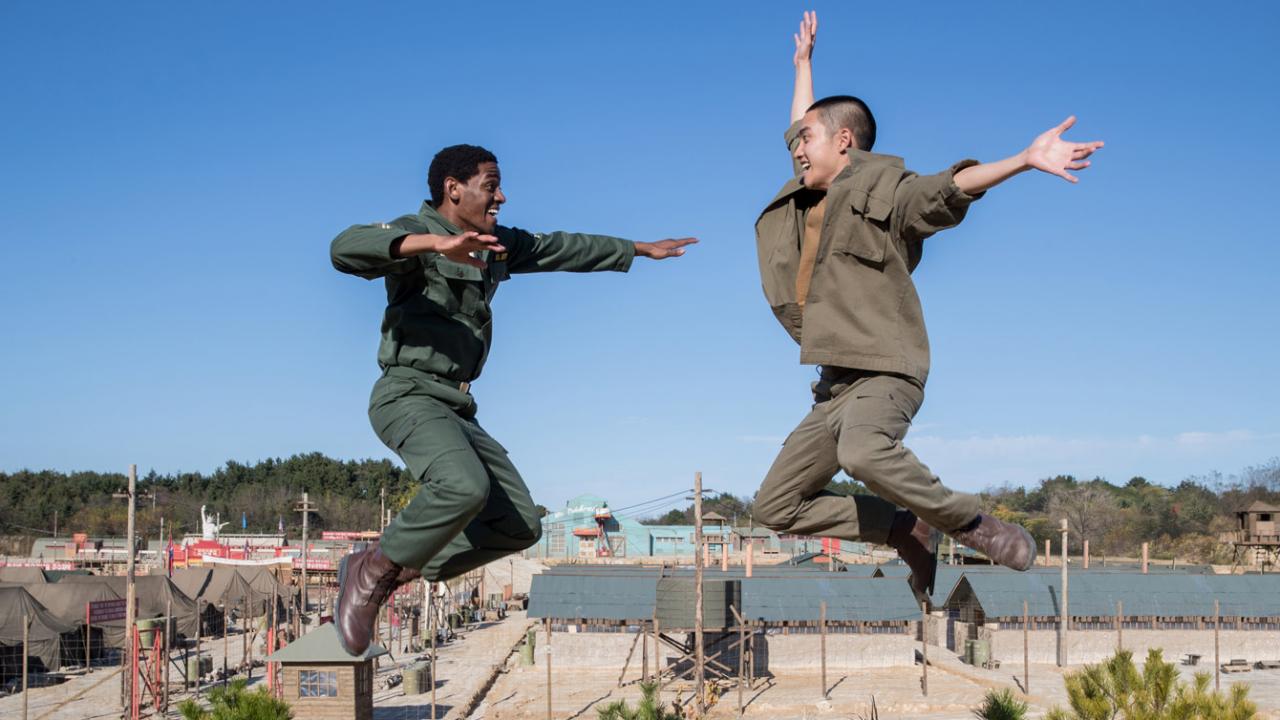When it comes to being a drama with a cohesive and understandable message, Swing Kids falters, and doesn’t make it clear whether or not the film advocates for either pro-capitalist or pro-communist ideas– understandably so, considering how to this day, the peninsula remains split in part due to foreign intervention. The film is a bit too long, and struggles to juggle multiple tones, being a violent war drama, slapstick comedy, and fun tap-dancing musical all at once. But, when the film revels in dance and celebrates the connections made through it, the film shines, creating an incredible sonic soundscape composed entirely of rhythmic taps and sweeping brass, with the five leads dancing in pure joy. Swing Kids is not perfect, but it has heart and it recognizes the waste and tragedy of the human side that is lost due to war.
Synopsis
Rebellious Ki-soo from North Korea is mesmerized by tap dance in prison camps. Ki-soo joins as a team member of a dance team named 'Swing Kids'. Yet suddenly, their dreams about dancing in prison camps are put in danger.
Storyline
Geoje-do prison camp, 1951. Communist Ro Gi-soo falls in love with tap dancing, after meeting former Broadway star and American officer Jackson, who finds a dance company in South Korean prisoner Kang Byung-sam, who hopes to find his wife, Chinese soldier Xiao Pang, who wants to improve his health, and translator Yang Pan-rae, who needs money.
TLDR
The tap dancing here… Seb in La La Land could never.
What stands out
The dance sequences, of course. It’s just so pleasurable to watch them dance and to listen to the music here.














